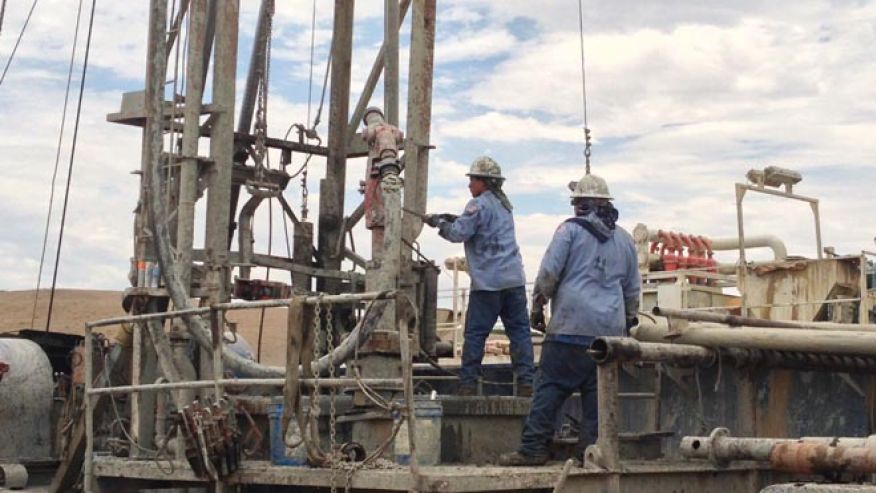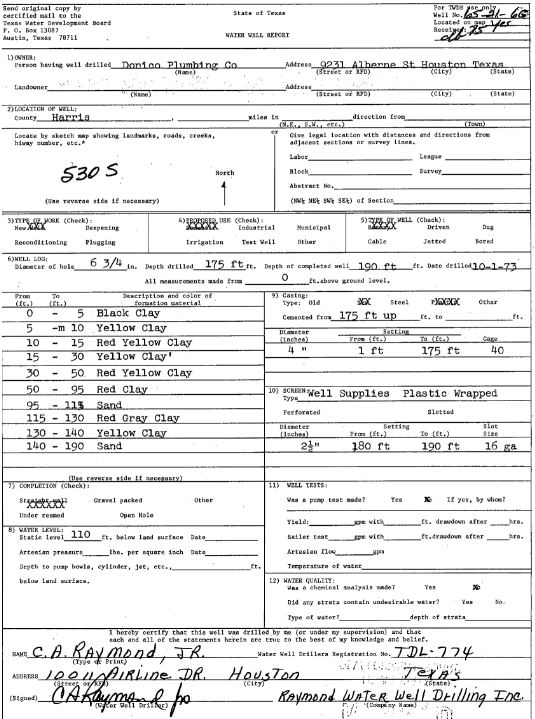You have probably heard by now: California is facing an extreme drought that is threatening the state’s population, ecosystems, and economic stability. What you may not know is that much of California, at least 40% during non-drought conditions, relies on groundwater wells to fulfill water demand. During times of extended drought that number jumps significantly. Currently, demand for groundwater and the extraction of water from aquifers is outpacing nature’s ability to replenish, or recharge, the aquifers and the water table is beginning to drop at an alarming rate.

Water well drillers are working around the clock to keep up with requests for new wells
In response to the lack of water and diminishing water table, countless farmers and landowners are finding that their water wells have dried up. Once the water table drops lower than the well is drilled, it is rendered useless. Today drillers must drill deeper than they ever have. Deep drilling comes with an immediate economic cost as well as an environmental cost that will become more apparent in the future. It was not uncommon for a groundwater well drilled 400 feet deep to provide water supplies that would be adequate for years, if not decades. However, due to the extended drought and a number of factors relating to the state’s lack of water pumping restrictions, many drillers now must drill 1,000 feet or deeper in some areas. Drilling water wells is not a cheap endeavor, and the deeper the well is drilled, the deeper the pockets you need to have. For example, a California drilling company in the Central Valley is drilling 1,000 feet deep for an astonishing price tag of $300,000-$350,000.
In my profession as a data provider, mapping and analyzing water wells is a large part of what we do. In fact, we have the largest well database in America and have worked in states across the country, including California. In order to map a well, we must review the well logs, also known as well completion reports, to identify a well’s location, depth, proposed use, owner, and numerous other factors, including lithology. Being able to identify and locate water wells helps environmental professionals understand aquifer conditions and how to better manage the groundwater supply. Additionally, knowing where wells are located enables people to contact well owners if there is a nearby release of hazardous substances that could be harmful to their health.

Example of a Texas water well log
However, California is one of the only states in the country that refuses to release water well information to the public. The state law that imposes the restriction was passed over 50 years ago and was originally intended to serve as a form of secrecy so drilling companies didn’t have to make the locations of their prime drilling areas public. This form of secrecy is similar to how fracking fluids are not required to be disclosed so that trade secrets are preserved and not revealed to competitors. The restricted well data could now allow researchers to better understand aquifer levels and more effectively address areas hit hard by drought. According to the Department of Water Resources, “Under the California Water Code, Well Completion Reports are confidential. State law prohibits their distribution without written permission of the landowner to anyone but the landowner, his or her designee, or a government agency.”
According to an article posted by National Geographic, “California is the only state [Tim] Horner is aware of that does not require water well logs to be made available to scientists and regulators. In dry Texas, in contrast, well data must be posted online so that officials can track the status of aquifers. Even worse, “in California we don’t regulate our pumping at all,” said Horner. “There’s nothing that says someone can’t pump a well until it’s dry.”
Personally I think it is time California enters the 21st century and discloses their water well data to the public. Information is power. If you give that information to the public, studies will be conducted and a deeper understanding of water resources will be realized. Only allowing state agency employees to review the information is an ineffective system and a waste of a valuable resource. I also feel this restriction is not compliant with the Freedom of Information Act.
What do you think about California keeping water well data secret? Leave your comments below.
Jordan Schmidt 
Editor
jschmidt@banksinfo.com
